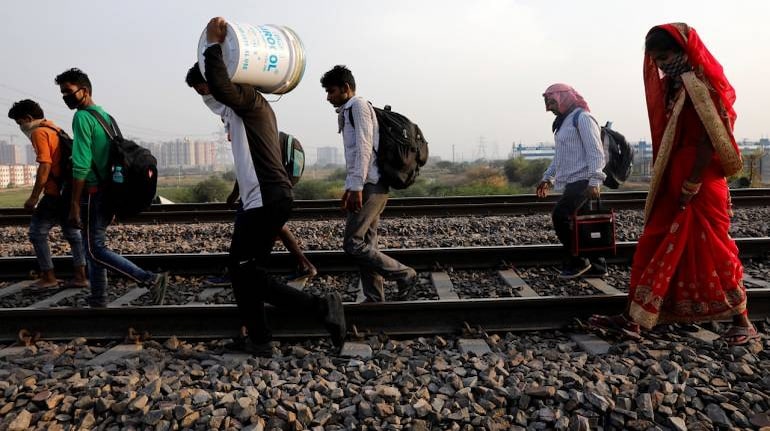
A study conducted by Azim Premji University has revealed that nearly 66 percent Indians have lost their jobs since the coronavirus-induced lockdown was imposed on March 25.
The survey was conducted on 5,000 respondents across 12 states from April 15 to May 15 and the result was released on May 28. It was carried out to analyse access to the government’s coronavirus relief schemes and how the lockdown has impacted the livelihoods of people.
For live updates on coronavirus, click here
As per the study results, the coronavirus lockdown also affected the food consumption pattern of household, with 77 percent of them reportedly consuming less food than they were before the lockdown. It also states that 47 percent of the households surveyed could not even afford to buy a week’s essential supplies.
The survey mentioned that the lockdown that was imposed to contain the spread of the novel coronavirus had greatly affected the economy, particularly straining the finances of the “vulnerable informal and migrant workers and their families”. It noted that both immediate and medium to long term policy measures will be required to reverse the negative impact and pave the way for economic recovery.”
The study observed that 44 percent of the salaried wage workers in Karnataka had claimed they have not received their salaries or faced pay cuts during the lockdown.
While the Centre or the state governments have not yet come out with a comprehensive report on the economic impact of the months-long nationwide lockdown, the Azim Premji University survey suggests 76 percent urban workers and 66 percent rural workers have lost their jobs already.
The daily wage labourers and migrant workers have been the worst-hit by the lockdown, as they were stranded without any means to earn livelihood. The agricultural sector, which was allowed to function even during the initial stages of the lockdown, has also seen a drop in earnings of the workforce by almost two thirds.
As far as relief measures announced to bail them out of the crisis are concerned, the study reveals only 30 percent households claimed to have received any assistance from the government. Majority of the migrant workers lived off the food and ration provided by private donors.
Discover the latest business news, Sensex, and Nifty updates. Obtain Personal Finance insights, tax queries, and expert opinions on Moneycontrol or download the Moneycontrol App to stay updated!